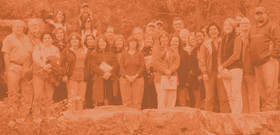The D&L Blog

This editorial originally appeared on Philly.com on January 10, 2010. As budget exigencies limit the ability of state and federal agencies to preserve and interpret our historic and cultural landscapes, the work of the D&L and other non-profit organizations takes on an increased importance. Please consider supporting our work by volunteering, becoming a member, or making a donation today.
Save Pa.’s Historic Treasures
Brent D. Glass is the former executive director of the Pennsylvania Historical and Museum Commission
Pennsylvania has started down the slippery slope of collective amnesia. Closing historic sites, canceling new exhibitions, cutting grants for museums, and eliminating maintenance of buildings and gardens are all measures designed to eventually terminate the presence of some of the most significant landmarks in the country. By slashing the budget of the Pennsylvania Historical and Museum Commission (PHMC), the Rendell administration and the legislature have ensured that the commonwealth will lose its preeminent national position as a steward of America’s heritage.
Am I overreacting? With 35 years of experience in the field of public history – 15 as director of the PHMC – have I taken a narrow view of the public interest? Quite the contrary. I am convinced that preserving history and making it accessible to everyone is directly connected to the preservation of our civic life and our democratic values and traditions. On the most fundamental level, public support of archives, historic sites, and museums ensures the survival of collections and connections that are of enduring value to our civilization.
These resources help us understand ourselves and our own times. These places, objects, and documents have intrinsic value and educational value: They shape the stories we use to learn, interpret, and teach about how we became the society we are today. They are about the people who have shaped our past. They are instructive and inspirational.
To suggest that the private sector will fill in the gaps created by reduced public funding is both naive and cynical. There is simply not enough private capacity in most of Pennsylvania’s towns and cities to operate and maintain these unique and significant historic places.
For decades, the PHMC worked closely with volunteer associations at every historic site, and these partnerships thrived through the integration of professional expertise with energetic and resourceful volunteers. Without the foundation of public support, most of the commonwealth’s great landmarks will close and crumble. The history of ordinary Pennsylvanians will be ignored and lost.
Many of us used to refer to the PHMC as the “Commonwealth’s Memory.” When an individual loses his or her memory, it is a personal catastrophe. When a society loses its memory, it is equally catastrophic. Sometimes this occurs violently, when dictators and tyrants close museums and archives, destroy historic landmarks and works of art, and burn history textbooks. They understand the power of memory.
In a democracy, the process takes more time and is less visible, hidden by euphemisms such as “fiscal responsibility” and “core-mission functions.” There may not be a single scene of overt looting and dramatic destruction, but the outcome, I am afraid, will be the same. Pennsylvania’s memory, carefully nurtured for nearly a century, has been dealt a fatal blow. The appalling absence of leadership from the administration, the legislature, and the PHMC itself has created a downward spiral that only a grassroots campaign can overcome. It is not too late to stop this irreparable self-inflicted loss of memory and the looting of a great heritage.
The views expressed in this editorial are those of the author alone and do not necessarily represent the official policy of the non-partisan D&L or its staff.










